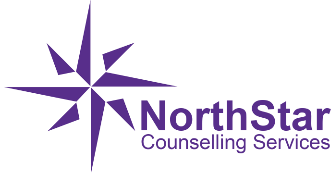Why is psychotherapy so expensive?
You’re right. Therapy can be pricey – anywhere from $80 – $300 per hour. What’s with the price tag?
Many therapists are running their own private practice or clinic. Therapy is in high demand and people are beginning to realize that mental health needs to be further up on the priority list.
Unfortunately, therapy isn’t a one-price, single-package, one-size-fits-all, get-better-quick scheme. Every client is different. Healing takes time, energy and … money. There are different fees for individuals, couples, children, groups – small or large. Fees vary greatly, depending on the market, the therapist’s specialty, level of education or advanced training. Beware! The price tag is not necessarily indicative of the therapist’s skill level or experience.
These high fees can make therapy unaffordable or inaccessible to some. Sliding scale and low-cost therapy exist, though often there are long waiting lists, and most people don’t have time to wait for help.
Whether you’re considering therapy, or you’ve been in it for years, there may still be some confusion as to what you’re getting for your money. Here are a few of the reasons why therapy can seem so expensive.
There’s a whole lot of overhead.
As a sole practitioner, everything below must be paid before the therapist gets paid:
- office rent and utilities – may include furniture, art supplies, instruments, special equipment
- professional development like courses, books or subscriptions to mental health networks like Psychology Today
- subscriptions to website builders of software like JaneApp
- getting licensed by professional associations and licensing body (College of Registered Psychotherapists of Ontario) and annual membership fees
- marketing costs
- professional liability and business insurance
- If you’re a sole practitioner or clinic director, eventually you’ll have to hire an administrative assistant, bookkeeper or other types of subcontractors.
All these things must be paid by the therapist before they can begin to take clients and, once they do bill a client, they have to pay the tax too. Registered Psychotherapists are the only mental health professionals in Ontario that have to pay 13% HST.
Non-billable Hours
As soon as you end the call or close the door behind you, you stop paying for services. After that, there’s still more work to be done.
After a 50-minute session, therapists must write notes and report about the session, usually taking a minimum of 10 minutes. Often clients can present issues that would benefit from consultation with other
professionals, such as a client’s psychiatrist, doctor or teacher. This also takes time. Between coordinating, consulting, meeting, and documenting, it can take much more time that can’t be billed for.
Fun fact:
To join the College of Registered Psychotherapist of Ontario (CRPO), you must have obtained 750 currency hours, 450 of which must be direct client contact within the past three years; and have successfully completed 100 clinical hours of supervision. If supervision is not within an agency, you must pay for that out of pocket.
Therapists are constantly learning
To be a therapist (at least a good one), continuing education is a must. As research supports new models, trends in mental health practice change. Every client presents a new and unique perspective and practitioners must stay up to date and informed in order to support clients in the best way possible.
If the therapist has a specialty, additional training, courses, books and research can cost a lot – sometimes thousands of dollars.
Why doesn’t my therapist bill my insurance company directly?
Each insurance company has different forms, plans, policies, and software. There is no one, standard way of doing things every time. It can take hours of administrative work to contact insurance companies, from forms to emails and phone calls. Long turnaround times for payment (sometimes months) can also be an issue. Most insurance companies and Employee Assistant Programs pay much less than the therapist’s private fees.
The worst part is, many EAP plans expect the client to be “cured” within 4-6 sessions and often prescribe the modality i.e. brief, solution-focused or CBT (cognitive behavioural therapy). Contrary to popular belief, one size does NOT fit all.
Is it worth it?
One of the reasons people may feel they’re not getting their money’s worth is that they’re seeing the wrong mental health professional. (Visit my website for the various distinctions https://northstarptbo.ca/faq/ )
Fees impact a number of things, such as wait-times and the number of clients seen per day. Therapists must pace themselves if they want to sustain their careers over the long term.
The work of a psychotherapist cannot be compared to a regular job. Being a good therapist requires a certain type of person, one who can be fully present to those in pain or confusion and not be overwhelmed by it. Education, training, experience, personality, mental and emotional effort are all factors in supporting others.
Having worked in for profit, non-profit, and faith-based organizations; having lived and worked in numerous marginalized communities; devoted to life-long learning, I bring not only knowledge but I bring myself, including all my life experience, to my clients. Some may consider this priceless. Others may think of it as an investment in their health, on par with regular visits to the doctor and treatments to ensure physical health.
As a registered psychotherapist, it’s my responsibility to create a safe and non-judgmental space where you can be supported as you take risks, while both joy and suffering are explored.
At NorthStar Counselling Services, we’re concerned not just about your mind, but also your body and spirit – all of you.
This is your journey … and you don’t have to walk alone.

